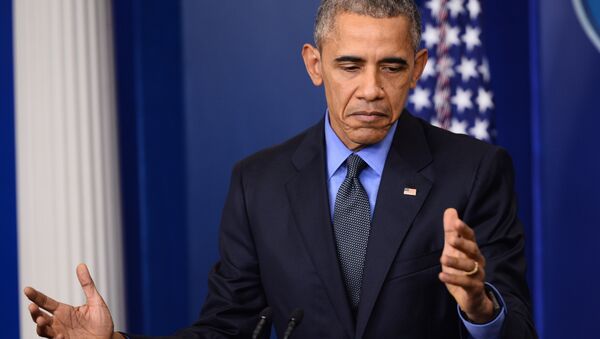WASHINGTON (Sputnik) — Paolo von Schirach is a Professor of International Relations at BAU International University in Washington, DC, and publisher and editor of the Schirach Report. Schirach served as political and economic adviser to a number of entities, including the US Agency for International Development and the European Union.
"What Obama cannot do is to crown his visit with an announcement of the end of the 55-year-old embargo — the longest one in modern history," Schirach said on Friday. "Obama cannot unilaterally end this anachronism."
Ending the embargo would require an act of Congress, but both chambers of the US national legislature are controlled by the Republicans, Obama’s political foes, Schirach noted.
"It is unlikely that, given the bitter domestic political divisions in the United States, it may be possible to find the common ground that would give Obama the votes he needs for this."
Obama will travel to Cuba on Sunday for a two-day visit in the wake of his US-Cuba normalization policy he announced in December 2014. Obama will be the first sitting US president to go to Cuba since Calvin Coolidge, 88 years ago in 1928.
"Let's make this clear. The embargo, imposed during the Cold War when Cuba was allied to the Soviet Union, today makes absolutely no sense. It is an empty political gesture."
The rest of the world does not participate in the embargo and every other country trades freely with Cuba, except the United States, he observed.
"Yet, this policy is still there because for decades no US administration wanted to act against the wishes of a sizable community of Cuban emigres, located mostly in Miami and Southern Florida."
However, Schirach noted that the venerable embargo had several holes.
"Cuban emigres and other Americans routinely travel back to Cuba on several daily charter flights. Money is sent from America to Cuba. And, finally, some loopholes have been created. Today 6.6 percent of Cuban imports come from the United States, mostly agricultural products."
Schirach also pointed out that bilateral diplomatic relations had been re-established and would soon be followed by regularly scheduled flights and ferry services.
"It would make perfect sense to do away with this ancient political relic of the Cold War and start doing business with Cuba normally, just as the United States conducts business with other countries."
However, the economic benefits and impact on the United States of improved ties with Cuba would be peripheral, Schirach predicted.
"I would not exaggerate the business opportunities created by an impoverished population of a little over 11 million, with a per capita GDP of only $ 6.000 a year, and therefore very little discretionary income," he cautioned.



